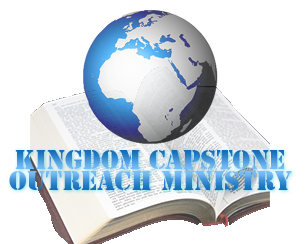You are here
MODEL OF IMPACTFUL LEADERSHIP (2)
“…TEACH them the statutes and the law, and SHOW them the WAY in which they must walk and the work they must do” – Exodus 18:20b
Moses’s MODEL of IMPACTFUL LEADERSHIP was demonstrated both in precepts and practice: “Listen now to my voice; I will give you counsel, and God will be with you: Stand before God for the people, so that you may bring the difficulties to God. And you shall TEACH them the statutes and the law, and SHOW them the WAY in which they must walk and the work they must do” (Exo.18:19-20). Moses’ leadership was significantly impacted by the counsel of his father-in-law, Jethro, in order to be more impactful. Jethro observed Moses handling all the people's disputes alone, and advised him to prioritize: delegate the task of judging the people to qualified and God-fearing men, creating a more efficient and sustainable leadership structure.
Moses was burdened by the responsibility of hearing and resolving every dispute among the people, basically acting as a sole judge and administrator, leading to burnout and likely inefficiency. We learn from his willingness to be mentored, humility, and dedication to his people’ well-being, even when it meant relinquishing some authority. Jethro, seeing Moses' struggles, advised that the task was too heavy and unsustainable for one person. He suggested delegating authority and responsibility to other capable hands who could assist in judging the people (vv.19-23). This strategy, as applied by Moses, resulted in a more efficient and sustainable system, allowing him to focus on major matters, strategic direction, and empowering stewardship.
Interestingly, Jethro attributed the advice to God: “If you do this thing, and God so commands you, then you will be able to endure, and all this people will also go to their place in peace” (v.23). Moses, despite his initial burden and established leadership, humbly accepted Jethro's advice: “So Moses heeded the voice of his father-in-law and did all that he had said” (v.24). He selected God-fearing and trustworthy men to help him govern the people, creating a more efficient and distributed leadership system. This delegation of authority led to the Israelites' well-being and the stability of the community.
Moses' willingness to seek advice and delegate responsibilities portrays humility and a commitment to serving his people. His model highlights the importance of delegating tasks to empower others and ensure leadership sustainability. Jethro's advice also underlines the need to surround oneself with qualified and trustworthy individuals to share the burden of leadership. By delegating responsibility, Moses empowered others to take on their share of the work, fostering a sense of ownership and accountability. He recognized his responsibility as a leader and took steps to ensure the well-being of his people, even at the cost of some personal effort. Above all, Moses’ model teaches and shows the way to walk and work!
Adetokunbo O. Ilesanmi (Meditations)
- Log in to post comments
Latest Tweets
No tweets to display now.
Our Vision
The vision of KCOM is that:
"the earth shall be filled with the knowledge of the Glory of the Lord as the waters cover the seas" (Habakkuk 2:14).
"But we all, with open face beholding as in a glass the Glory of the Lord, are changed into the same image from glory to glory even as by the Spirit of the Lord" (2 Corinthians 3:18).
Copyright © 2013–2026 Kingdom Capstone Outreach Ministry. | Designed by ZoeWox Technologies
